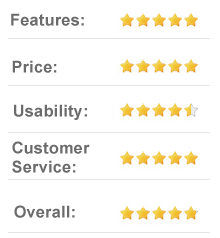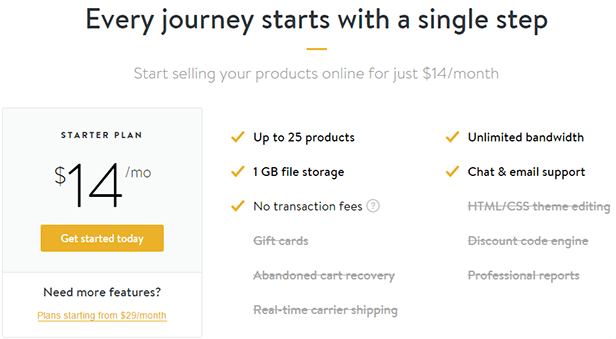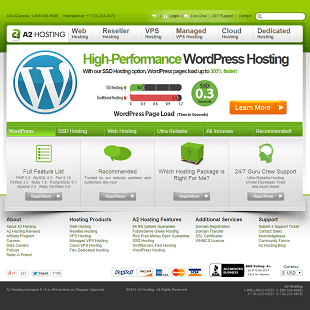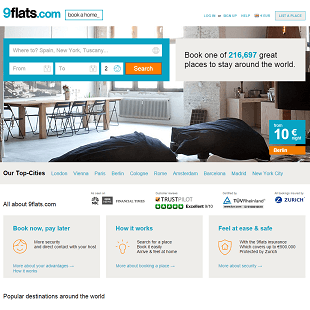Shopify has emerged as a major force in online retailing, not by selling merchandise, but by supporting independent sellers in selling their merchandise, and services, online. They are best regarded as a sort of online bazaar, recreating in virtual form those byzantine complexes, still present in the Middle East and elsewhere, that house a myriad of kiosks, stalls, and shops selling everything from peanuts to prayer books. Come my friend, sit, have tea, we will show you our carpets!
The firm was started ten years ago as a simple online store devoted to selling snowboard equipment directly to snowboarders. Basically, they were the type of store that they now provide virtual support to in their online bazaar. They soon discovered, however, that there were no ready-made tools allowing them to own their own brand and build customer relationships. And so they built those tools themselves, creating Shopify as a result.
Today, over 150,000 active Shopify stores are supported by the site, and those stores are selling over $7 billion in goods annually. The company now has over 500 employees working in four offices across Canada (did we mention that they are Canadian?). The firm of course gives users two reasons to visit. One is to shop at any one of those 150,000 stores, and the other is to become their next online store yourself, in the event that you have goods or services for sale.
Featured Products
We’ll start out with the product that the firm itself offers, and move on later to what their hosted retailers (or e-tailers, or e-retailers) offer. The company provide merchants with complete control over how their sites look and feel, and that control extends from domain name to layout, colors and content. Because most merchants are experts in their goods and services, and not necessarily in technical support, the firm provides full design support, offering over a hundred professional store templates that can be customized to suit your personal tastes and your customers’ expectations.
You can browse a Shopify Theme Store where store theme ideas are offered, many of them produced by well-known designers including Happy Cog, Clearleft, and Pixel Union. Your store will be provided with a built-in shopping cart, empowered with mobile capabilities that allow customers to shop and buy your goods from their mobile phones or tablets.
A recent trend in online sales is the inclusion of fresh textual content relating to your product line, including articles that provide customers with additional information concerning your products. The firm has adapted to this trend by providing taps and links to article and other text content that you may wish to provide.
And when it comes to taxes and fees, the company has waded into this complex and cumbersome area and set up automatic handling, based on your location, of major country and state taxes. They also support you with automatic shipping rates from major shippers including UPS, USPS and FedEx. You can set up your shipping rates as fixed-price, tiered, weight-based, or location-based.
And when it comes to the remaining services that any online retailer needs to have addressed, Shopify seems to have it covered. They will provide software to offer free shipping at certain price points, to offer checkout services in up to 50 different languages. They also support recovering lost sales by sending automatic emails to prospective customers with a link to their abandoned shopping cart – it’s like being able to follow them out of the store and try to usher them back in!
The company also support the creation of customer accounts, which can encourage repeat sales, and categorization of export customer lists, and connection to fulfillment solutions including Amazon, Webgistix, and Shipwire.
Pricing
The Starter Plan that is offered by the company starts at US$14.00 per month, and the price rises as you add additional functions. You will also be charged platform transaction fees in the form of a percent of sales. The firm formerly applied these fees to all their plans, but no longer does, and so you will need to bear this in mind as you work your way through their pricing policies in more detail.
And while you’re calculating the cost of using this service, make sure to include the savings you will achieve through their recent point-of-sale and processing network. These innovations will allow you to avoid the use of a third party processor for your credit and debit card transactions. The fees that they firm charges for these services will in many cases be lower than those charged by the credit card issuers.
There are also add-on fees charged by the company for third-party applications or plugins that you may wish to obtain to augment your customers’ site experience. The company features a very large app store, with a fair number of the offered apps being free. As your hosted site achieves success, you may wish to visit that page and secure additional bells and whistles for your site.
Overall, the company’s pricing is in line with other similar e-retail hosting sites, and as a result, and broadly speaking, you can focus your comparison shopping on features more than cost.
Complaints
There aren’t many, but the occasional user complaints tend to center on the jargon that the firm uses, which is just a bit different from the standard terms, with “collections” used instead of “categories,” as an example. Users have also mentioned that while the firm has its own blogging software, other blogging platforms are a bit more intuitive and more fully developed. Overall, however, complaints are muted, and are overwhelmed by praise for the firm’s production of a one-stop e-retail platform.
Customer Service
The company supports its retailer-customers with inventory management that tracks your stock and will stop selling products automatically stop selling products that are out of stock. They also enable you to add multiple images of your products, and support for ordering or downloading digital products directly from your online store, and provide gift cards to your customers.
And when it comes to Search Engine Optimization (SEO) product tags, which greatly assist your visibility on the Internet, Shopify supports SEO best practices, including meta tags, and generated sitemap.xml. They will also enable discount codes and coupons, and sales and promotions, permitting you a full range of options as to whether the discount is for dollars off, percentage off, or free shipping.
They will also help you integrate social media including Pinterest, Instagram, Facebook, Twitter, and Tumblr, and provide free Google and Facebook ad credits. They also provide unlimited bandwidth, daily backups, and unlimited email forwarding if you buy a domain name from the company.
Add on to this a fully functional dashboard, Google Analytics, and traffic and referral reports, and you have a turnkey approach to entering e-commerce even if your specialty is antique chess sets or handcrafted jewelry.
And if you need additional support, Shopify offers on-staff experts who will walk you through the process, allowing you to customize your store from soup-to-nuts, and that will let you sell anything from soup to nuts as well.
Final Thoughts

By simplifying the process of migrating a business online, and providing comprehensive technical support for an online retail operation, Shopify is driving the online revolution, and enabling thousands of retailers and service providers who are savvy when it comes to their businesses but not when it comes to IT and online website hosting, to participate in the emerging marketplace. If you’re existing business needs this kind of support, this company is certainly worth a look. And if you are thinking of entering the marketplace with some great good, service, or idea, Shopify will make it that much easier for you to do so.










